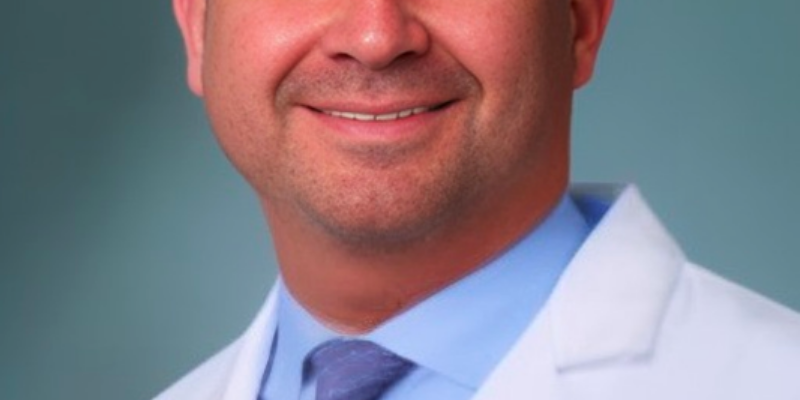Cencal Cover Weightloss Surgery
Does Cencal Cover Weightloss Surgery
With Cencal insurance, there are rules about coverage for both adults and teens. Adults over the age of 18 must have been called “severely obese” for at least 24 months to meet the definition of “severely obese.” Cencal says that a person has severe obesity when:
- In particular, a Body Mass Index (BMI) of 40 or higher.
- A BMI of 35 or higher when there are a lot of other health problems.
- Co-morbidities include things like obstructive sleep apnea, coronary heart disease, high blood pressure that doesn’t respond to medicine, and type 2 diabetes.
How Does Cencal Cover Weightloss Surgery?
Teenagers should be:
If you are a girl, you must be at least 13 years old, and if you are a boy, you must be at least 15 years old.
A BMI of 40 or more, plus one of the above major comorbidities, pseudotumor comorbidity, or both.
Patients, whether they are adults or teenagers, must have tried to lose weight before and failed. The patient will have to go through either a nutrition and exercise program supervised by a doctor or a multidisciplinary surgical preparation plan to find out if they are ready for surgery. For the patient’s doctors to figure out if surgery is the best choice, they need to keep track of this information. Because of this, Cencal has very specific documentation requirements that you must meet if you want to get paid for weight loss surgery. You’ll need to talk to your insurance company to get a clear idea of what this means.
Does Aetna Cover Weight Loss Surgery?
Under some Aetna plans, you may have to choose a doctor who is part of the network for your weight loss surgery. However, this is not always the case. Using a doctor or hospital in your insurance plan’s network is almost always cheaper. Aetna can help you figure out where to go for weight loss surgery so that you can get the best results for the best price based on your insurance coverage.
In the patient’s medical records, the doctor has written down that the person followed the diet and exercise plan. Before surgery, the patient may be given a plan for how to exercise and eat, and the surgeon may keep an eye on how well the patient follows the plan. A letter from a doctor that summarizes their findings does not meet the requirements for good documentation. In your documents, you should include the following:
In the patient’s medical records, the doctor keeps track of how well the person exercises and eats. Fitness and nutrition programs run by a doctor can be an alternative to medical records for patients who are taking part and getting better. A doctor will work with nutritionists and dieticians on the exercise and diet plan.
Before surgery, a program has to be used for at least six months. One of these programs should include a three-month subscription. Even if you haven’t finished the diet and exercise program, you may be able to get certified after six months of doing it.
When To Get Aetna Cover Weight Loss Surgery?
Patients must start an intensive three-month multidisciplinary pre-operative regimen at least six months before their surgery date. This is to make sure the surgery goes well, reduce the risk of complications, and make sure the patient can deal with and follow post-operative dietary restrictions and medical care. A behavior change program is run by a doctor. It is suggested that you talk to a dietician. At each visit, the patient’s participation will be written down in their medical records. A doctor’s summary letter is not sufficient documentation. Instead, the papers should have:
In the medical records, the doctor writes down the results of the first visit and any follow-up visits. Before surgery, patients should work with a trained expert or exercise therapist to follow an exercise program that will help them build up their pulmonary reserve. The program should have happened in person, not over the internet. A low-calorie diet plan that is overseen by a nutritionist.
Types Of Surgery Covered By Insurance
People with borderline personality disorder (BPD), schizophrenia, or severe depression who want to go through a procedure must first get psychological permission from a psychiatrist, psychologist, or person who uses psychotropic drugs.
People don’t hesitate to have surgery because they are sad because they are overweight. Aetna will pay for four different types of weight-loss surgeries:
- The stomach sleeve
- Switch Duodenal
- Gastric banding
- Bypass the stomach
Switch Duodenal
Your doctor may suggest that you get biliopancreatic diversion with duodenal switch (BPD/DS). This is what most people call the duodenal switch. Experts say that it helps people lose weight more than either the gastric bypass or the sleeve gastrectomy. Studies have shown that the procedure helps to lower the risk of diseases linked to obesity. Some of these conditions are heart disease, high blood pressure, and especially type 2 diabetes.
Because of BPD/DS, you may not be able to absorb enough calories, vitamins, and minerals to keep your weight from going down. The duodenal switch is better at helping people lose weight than either the gastric bypass or the sleeve gastrectomy. After that, you will be more likely to run out of food. Some of these conditions could be fatal if they are not treated. When deciding whether or not to have surgery, these and other risks should be carefully weighed against the benefits.
With BPD/DS, there are three different ways to lose weight. The first step in treatment is a sleeve gastrectomy. The stomach was cut in half with equipment for stapling. So, it’s leaving a thin tube that goes from the top to the bottom of the stomach. If your stomach is smaller, you will eat less food and take in less calories.
The second step of this operation is to move food away from the top part of the small intestine, which is where digestion takes place. Your body can’t take in as many calories and nutrients because of this. After the guts separate, a link is made near the end of the small intestine.
In Alabama, Weight Loss Surgery is Increasing Its Popularity
As a result of the increasing popularity of Alabama weight loss surgery, more and more people are turning to the procedure for help with their weight-related health issues. Along with the positive results surgeons have seen from bariatric weight loss surgery, there has been a rise in support and resources for those considering it. As a result, more surgeries are being performed throughout the state, giving hope to those looking for effective solutions to their weight problems.

As its prevalence increases, so does the knowledge about the different options available in terms of treatments and outcomes. Research into successful weight loss techniques has introduced a variety of procedures that have helped many individuals manage their obesity or health-related issues. Healthcare providers, including bariatric surgeons, have been working to make weight loss surgery a viable option for those who need it. They are also educating the public on healthier lifestyle changes that can lead to greater long-term success following weight loss surgery.
The future looks bright as more people take advantage of this type of surgery and achieve their desired results. With such encouraging trends, it’s clear that Alabama weight loss surgery is here for the long run. Improved access to care is likely due to the fact that major medical centers throughout Alabama are now offering comprehensive services related to bariatric surgery.



